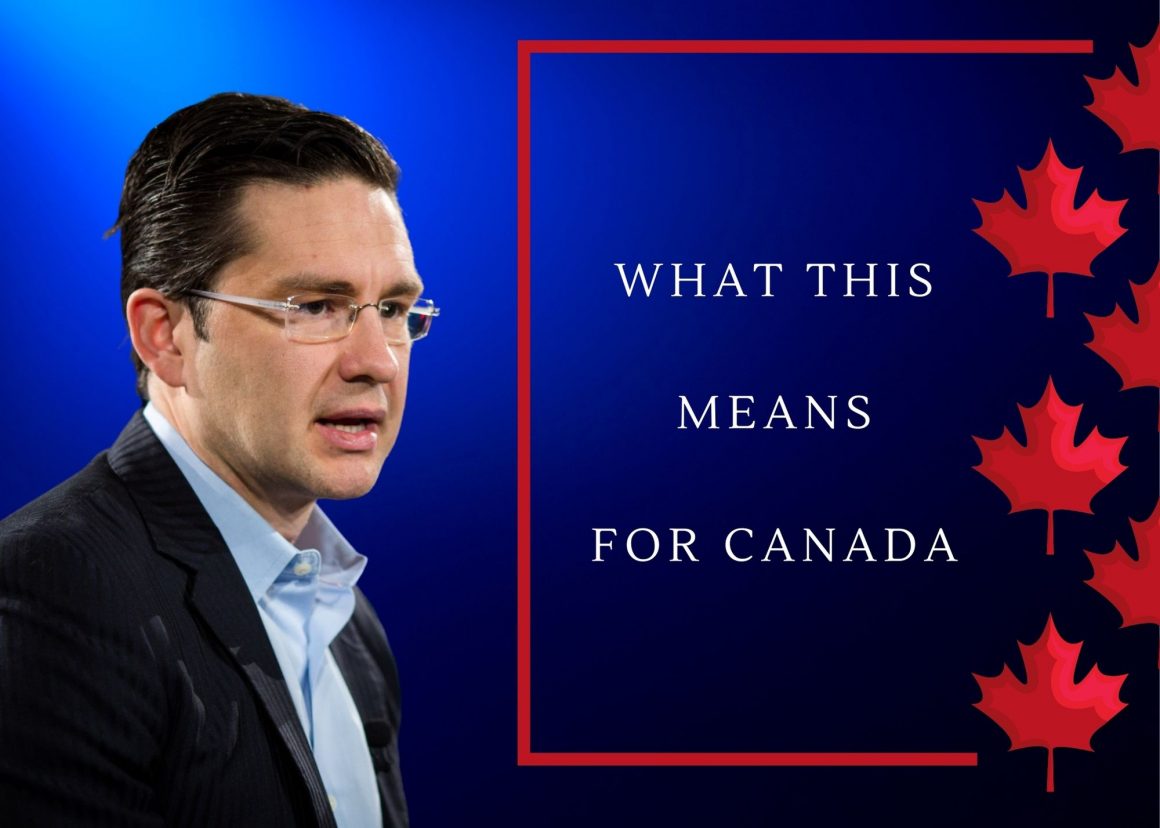
The Pierre Poilievre populism problem
By Anjali Choudhary, October 17 2022—
From his time in 1999, as a University of Calgary student, winning a national essay competition, to his victory speech in the 2022 Conservative Party of Canada (CPC) leadership election, Pierre Poilievre has made his views on governing Canada clear. Less government, more freedom.
While the consistency of his messaging is certainly admirable, the implications of his views may be more damaging than what they seem on the surface. Namely, Poilievre’s rhetoric has been tied to populist views and the potential dangers that follow suit. This is especially concerning considering the recent political turmoil of populist leaders like Donald Trump. Typically associated with far-right political views, this ideology has been linked to the vigorously anti-vaccine and anti-mandate People’s Party of Canada, which failed to gain a single seat in the House of Commons in the 2021 federal election. However, with Poilievre’s win, populism has walked right into the seat of the official opposition, and potentially, the prime minister’s office — should the Conservatives gain favour in the next federal election.
At its core, populism fights for ordinary people against elite establishments. But, it has a dangerous track record when voted into power in democratic nations, as seen in the case of Donald Trump’s “build the wall” immigration policies. Ironically, Poilievre has been making hundreds of thousands of dollars because of the elite establishments he supposedly opposes since the beginning of his political career at 24 years old. Nonetheless, attacking gatekeepers and amplifying conspiracy theories surrounding the World Economic Forum have caused many to accuse Poilievre of transitioning the Conservative Party of Canada away from the more moderate conservative realm to a more radicalized and extreme version of conservatism.
Regardless of whether Poilievre is a true populist, or just a rich career politician wearing the mask of one, his decisive win in the leadership election marks a concerning trend for the further polarization of Canadian politics and the divisiveness of Canadian society at large. Poilievre has had a controversial start to his leadership campaign by closely aligning himself with the freedom convoy. This was despite attendees proudly bearing hate symbols and some organizers being revealed to have histories in white supremacy movements.
Before an uproar of complaints about this being a fringe and non-representative portion of the movement takes over, let’s establish the fact that it simply does not matter. It does not matter whether there was one white supremacist or a hundred. If the potential leader of a democratic and inclusive country supports a movement, just one extremist individual at the head of that movement is enough to cause concern. Poilievre has also spread conspiracies surrounding the World Economic Forum and made claims such as wanting to fire the Bank of Canada governor during his campaign. Although he seems to have slightly moderated his message after becoming leader of the conservative party, the truly concerning aspect is the fact that these initial messages are the ones that he won the leadership election on.
He may not be explicitly praising the freedom convoy anymore, but convoy attendees donated over $460,000 to the conservative party leadership race to be able to make his victory possible. If you ask me, the cries of “freedom” when Poilievre’s victory as the conservative leader was announced sounded awfully similar to the ones at the trucker protest.
Considering that the conservatives won the largest percentage of votes in 2021 despite losing the overall election, Canadians clearly feel themselves represented by their party views. So, does this shift away from a more moderate leader represent a shift in the sentiment of Canadians at large? Or is it simply the party trying out a different tactic to defeat the Liberals? Can these two even be separated?
Nonetheless, in adopting further right-wing views, people that support more centrist and left-wing policies are inherently going to be alienated and feel unrepresented. With increased polarization follows increased frustration and unhappiness with the entirety of the political system. If you live in Alberta, you are well aware of the disdain for the federal Liberal Party. In fact, this disdain has led to a front-runner in the United Conservative Party of Alberta’s leadership race campaigning on western-separatist sentiments with the proposed Alberta Sovereignty Act.
However amplified these sentiments may be currently, electing a federal party that does not cater, in any way, to a more centrist view may lead to a Canada that follows in the footsteps of the United States — a country that is so divisive that nobody is truly satisfied or represented and internal fighting ruins any chance to make national progress. With Poilievre having yet to release a specific platform or policy proposals, we can only speculate what portion of the population his party will cater to. But, for the sake of democracy and prosperity of our country, the conservative party must decide to be inclusive of far more of the population than Pierre Poilievre has shown thus far.
This article is a part of our Voices section does not necessarily reflect the views of the Gauntlet editorial board.
